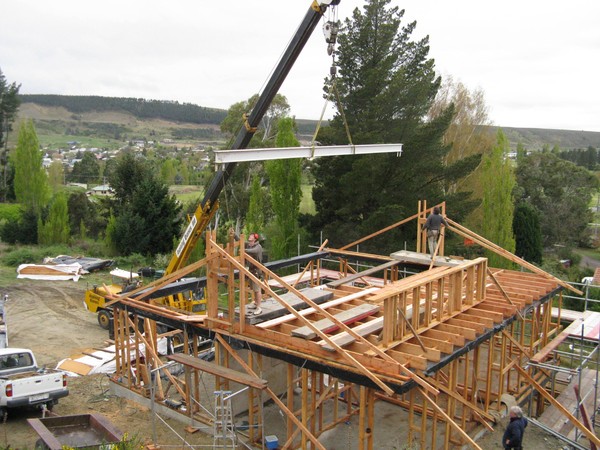Statistics New Zealand’s latest consent data shows that, once seasonally adjusted, the number of new dwellings consents nationwide fell by 0.7% in July.
The decline came on the back of a 1.3% fall in consents last month.
The number of new dwellings consented in July was 2,762 which was 1.7% down on July 2016.
Construction statistics manager Melissa McKenzie said July’s fall was largely driven by a decline in the number of consented apartments and townhouses.
This was particularly apparent in the Auckland region, which had the largest fall in July. There was 774 dwellings consented but that was down by 29% year-on-year.
McKenzie said that Auckland’s numbers are quite volatile because almost half the dwellings consented are in multi-unit projects.
In contrast, the Otago region saw a 68% year-on-year rise in dwelling consents to hit 282 in July. This was driven by a spike in apartments in Queenstown.
ASB economists said the data shows the nationwide trend for consents eased for the third month in a row in July, with Auckland and Canterbury issuance well below mid-2016 peaks.
This means the country is still running short of what is needed to meet current population growth, let alone to alleviate shortages in Auckland, Wellington and Queenstown, they said.
“A concerted period of strong building activity will be needed to meet population needs and address housing shortages. But the jury is out on when the positive upward trend will reassert itself.”
The flatlining of consents is a particularly acute problem for Auckland.
In the year to July 2017, there were 10,051 consents issued in the Auckland region, with about 800 a month being issued on average.
But it is estimated that Auckland has a shortage of around 35,000 homes and needs to have 11,000 to 12,000 built each year for supply to keep pace with demand.
Westpac senior economist Satish Ranchhod said the construction sector upturn has run into some roadblocks from capacity constraints, rising cost pressures, tighter credit conditions and, possibly, pre-election uncertainty.
“While we wouldn’t want to read too much into a single month of data, the July performance is consistent with our view.
“We anticipate a period of subdued construction growth as a result of these constraints, though there is still a large pipeline of planned work.”
Read more:
Supply shortage will counter cooler market
Shortfall to get worse before it gets better


![[OPINION] Recessionary times](https://www.goodreturns.co.nz/pics/people/thumbs/300/Gilligan_Matthew_GRA%20New.jpg)


 Search
Search
